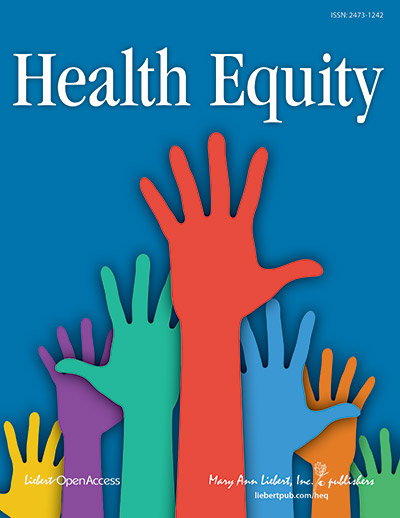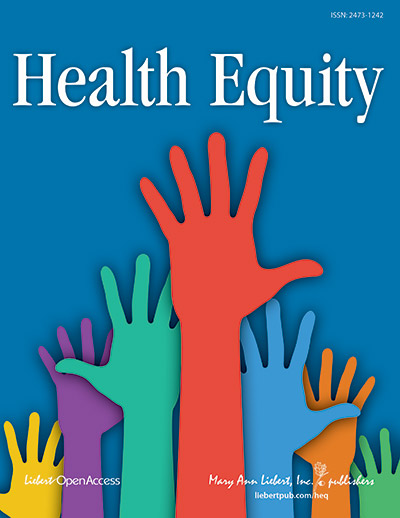Special Issue: Race Adjustment in Clinical Algorithms and Other Clinical Decision-making Tools
Guest Editors:
Michelle Morse, MD, MPH
Chief Medical Officer
Deputy Commissioner, CHECW
New York City Department of Health and Mental Hygiene (DOHMH)
New York, NY
Nichola Davis, MD, MS
Vice President
Chief Population Health Officer
NYC Health + Hospitals (NYC H+H)
New York, NY
Chandra Ford, PhD, MPH
Professor, Department of Community Health Sciences
Founding Director, Center for the Study of Racism, Social Justice & Health
UCLA Fielding School of Public Health
Los Angeles, CA
Ruqaiijah Yearby, JD, MPH
Kara J. Trott Professor of Law
Moritz College of Law
The Ohio State University
Columbus, OH
Abstract Deadline: November 16, 2022
(Upon Abstract Approval) Manuscript Submission Deadline: March 6, 2023
The Editors invite manuscript submissions that address and bring attention to the incorrect use of race and ethnicity in clinical algorithms in health systems across the US and internationally. Clinical algorithms are used to aid clinicians in patient care decisions and are often based on predictive analyses of population-level datasets. Race modifiers in these algorithms have been called into question because of disparate, often inequitable, impacts on minoritized patients. For example, until recent shifts in national guidelines, equations to estimate kidney function ascribed a healthier “adjusted” value for Black patients, sometimes delaying necessary care such as evaluation for kidney transplant. Race modifiers in pregnancy-related tools have disparately increased the likelihood of receiving a repeat cesarean section for Black and Latinx birthing people, potentially exacerbating birth inequities. And, race-specific reference equations are used to assess the lung capacity of Asian, Black, and “Caucasian/Other” individuals, insinuating the presence of intrinsic racial differences in lung biology where none exist. In response to the need to address the use of race modifiers in clinical care, the New York City Department of Health has partnered with health systems across the city to launch the Coalition to End Racism in Clinical Algorithm (CERCA). The coalition is unique in its objective to promote a just health care system citywide through engaging stakeholders across health systems, public health, social sciences, and patients.
“Race” is a socially and politically defined construct which categorizes humans largely based on observable physical features and ancestral origin. While racial groupings are not indicators of biological differences, race has remained among the strongest predictors of health care access, quality, and outcomes for generations due to its direct correlation with impacts of all levels of racism. Race is not synonymous with genetic or continental ancestry, yet it is often inaccurately described as a proxy measure in research literature. Human genetic and phenotypic variation, including physical differences which are often the basis of racial categorization like skin color and hair texture, do not map neatly onto races or continents. Yet, terms like “African descent” or “European ancestry” are often used to describe sweeping continental associations with disease alleles; these problematic generalizations are inaccurate and easily misconstrued as racial groupings. For example, although clinicians frequently conflate Black race—or “African ancestry”—with sickle cell disease risk, the genetic mutation causing this disease confers resistance to malaria and is thus concentrated in specific areas across the African continent, Middle East, Mediterranean, Southeast Asia, and Latin America. In short, ambiguity in how “ancestry” is defined (continental vs. genetic), its conflation with race, and broader ignorance of racism as the fundamental cause of racial disparities contributes to imprecision and inequity in disease risk assessment.
Race-based equations were often built upon now debunked race-as-biology theories. White bodies have been defined as inherently “normal” and minoritized bodies as “other” leading to harmful and incorrect blanket racial groupings (e.g., “Black” vs. “non-Black”). Moreover, these racial groupings neglect to offer guidance for multiracial individuals who now comprise one in seven babies born in the United States. Race-based clinical algorithms have long been “hidden in plain sight”, pervasively impacting care for many common diseases.
Suggested topic areas include, among others:
- Historical origins of race adjustment in medicine, clinical decision-making tools, and artificial intelligence tools in medicine
- Current activities, successes, and challenges around removal of race from clinical decision-making tools at the institution- and system-level and its impact on patient outcomes
- City, state, and federal policies and policy analysis supporting removal of race adjustment from clinical decision-making tools
- Programs, interventions, and policies intended to interrupt or end algorithmic racial bias in medicine
Submission Process
Each submission will initially be screened through an Abstract review through which author teams will provide a working Abstract of the proposed article. Following evaluation of the Abstract, the guest editors will invite selected authorship teams to submit their manuscripts for peer review and full consideration for inclusion in the Special Issue.
Submit Abstracts for review by November 16, 2022, to: ChiefMedicalOfficer@health.nyc.gov
Submissions being solicited
The editors encourage submissions of original research articles, reviews, policy briefs, practice briefs, case studies (national and international), and perspectives. Manuscripts written by academics, community representatives, joint community and academic collaborators and those that center action research, community science, and other participatory research approaches are particularly desired. Student perspectives as well as international perspectives are also welcomed and encouraged.

